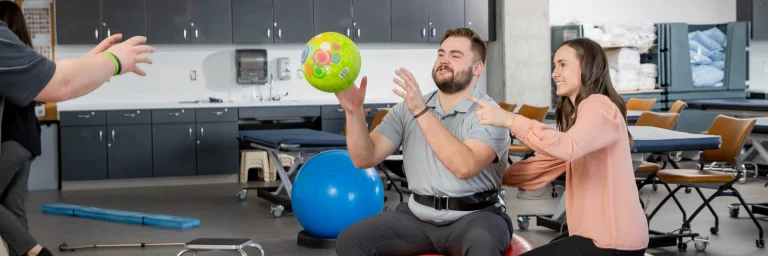Pre-Physical Therapy Program
Start your path towards a doctorate in physical therapy by enrolling in this pre-professional program.
Working with children, the elderly or even professional athletes to regain mobility and functionality is the role you'll play as a physical therapist. UND’s Pre-Physical Therapy program is designed to prepare you for the rigors of physical therapy school, and to provide you with guidance and support you need to be successful.
- Program type:
- Pre-Professional Program
- Format:
- On Campus
- Est. time to complete:
- 3 years
- Credit hours:
- 90
Why study pre-physical therapy?
Pre-Physical Therapy at UND
-
Participate in direct delivery of physical therapy services in a variety of settings.
-
Take classes in the state-of-the-art School of Medicine & Health Sciences building.
-
Gain advanced knowledge and skills in the Sports Physical Therapy Residency program.
-
Join UND's Physical Therapy Club to network with your future colleagues and gain experience in the field.
-
Learn at a program accredited by the Commission on Accreditation in Physical Therapy Education (CAPTE).
Physical Therapy Careers
Pre-Physical Therapy Courses
Leader in Physical Therapy
When Kayana Trottier transferred to UND, she followed her passion for physical therapy despite the challenges in her personal life. Now she's set to become a physical therapist.
